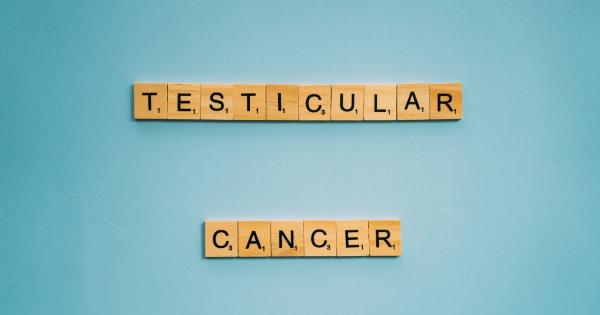Testosterone is a hormone that plays a vital role in men’s overall health and wellness. It helps in maintaining muscle mass, bone density, fat distribution, red blood cell production, and sex drive.
Testosterone deficiency in men can result in fatigue, decreased sex drive, erectile dysfunction, depression, and other health problems. Here are some groups of individuals who are most at risk of testosterone deficiency:.
1. Aging Men
As men age, their testosterone levels decrease gradually. After the age of 30, men may experience a decline in testosterone levels by 1% per year. By the age of 70, testosterone levels may have declined by 50%.
This natural process can result in a range of symptoms, such as fatigue, decreased sex drive, and loss of muscle mass.
2. Overweight or Obese Men
Studies have found a link between excess weight and low testosterone levels. The more body fat a man has, the more estrogen he produces, which can lead to lower testosterone levels.
3. Men with Chronic Medical Conditions
Medical conditions such as diabetes, chronic obstructive pulmonary disease (COPD), and chronic kidney disease can also increase the risk of testosterone deficiency.
These conditions can interfere with the body’s hormone production and affect testosterone levels. Men undergoing treatment for cancer, such as radiation therapy and chemotherapy, may also experience a decline in testosterone levels.
4. Men with Pituitary or Testicular Disorders
Pituitary and testicular disorders can interfere with the production of testosterone, resulting in deficiency. The pituitary gland produces luteinizing hormone (LH), which signals the testes to produce testosterone.
If the pituitary gland is not functioning correctly, LH production may be decreased, resulting in low testosterone levels. Testicular disorders, such as injury or infection, can also result in testosterone deficiency.
Top Foods to Avoid for Testosterone Deficiency
Diet plays an essential role in overall health, and it can also impact testosterone levels. Here are some foods that men with testosterone deficiency should avoid or limit:.
1. Soy Products
Soy products contain a high amount of phytoestrogens, which can mimic the effects of estrogen in the body and reduce testosterone levels. Men with testosterone deficiency should limit their intake of soy products such as tofu, soy milk, and edamame.
2. Alcohol
Alcohol can disrupt the endocrine system, which is responsible for producing hormones such as testosterone. Heavy alcohol consumption can also increase estrogen levels, leading to a decline in testosterone levels.
Men with testosterone deficiency should limit their alcohol intake or avoid it altogether.
3. Processed Foods
Processed foods contain high amounts of sugar and unhealthy fats, which can contribute to weight gain and increase the risk of testosterone deficiency.
Men with testosterone deficiency should avoid processed foods and instead consume a diet rich in whole foods.
4. Flaxseed
Flaxseed is a rich source of lignans, which can also mimic the effects of estrogen in the body and decrease testosterone levels. Men with testosterone deficiency should avoid or limit their intake of flaxseed and flaxseed oil.
5. Mint
Mint contains compounds that can decrease testosterone levels. Men with testosterone deficiency should avoid consuming mint in large amounts.
Testosterone deficiency can affect men’s overall health and well-being. It is essential to recognize the risk factors and take steps to maintain healthy testosterone levels.
Diet plays a crucial role in testosterone production, and avoiding or limiting certain foods can help maintain healthy levels of testosterone. Speak with your healthcare provider if you are experiencing symptoms of testosterone deficiency or have concerns about your testosterone levels.





























